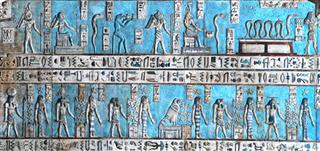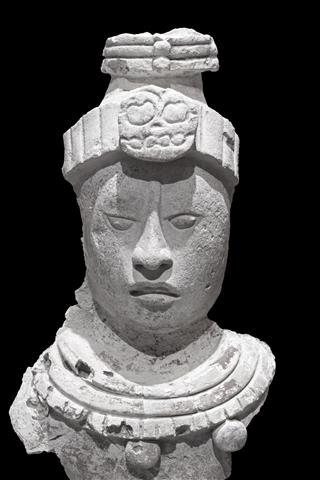
Culture is a complex system of behavior, values, beliefs, traditions and artifacts, which is transmitted through generations.
Without culture, and the relative freedom it implies, society, even when perfect, is but a jungle. This is why any authentic creation is a gift to the future. – Albert Camus
Culture is a learned pattern of behavior, and is a way in which a person lives his life. It is an integral part of every society, and creates a feeling of belonging and togetherness among the people of that society. Culture encompasses various aspects of communication, attitude, etiquette, beliefs, values, customs, norms, food, art, jewelry, clothing styles, etc. Every society has a different culture, which gives it an identity and uniqueness.
In spite of the vast cultural diversity, there are certain elements of culture that are universal. They are known as cultural universals, which comprise certain behavioral traits and patterns that are shared by all cultures around the world. For instance, classifying relations, having some form of art and music, use of jewelry, classifying people according to gender and age, etc., are common in all cultures of the world.
Definitions of Culture
Culture is that complex whole which includes knowledge, belief, art, morals, law, customs and other capabilities and habits acquired by man as a member of society. – Edward Tylor
Culture embraces all the manifestations of social habits of a community, the reactions of the individual as affected by the habits of the group in which he lives, and the product of human activities as determined by these habits. – Franz Boas
Culture is what makes you a stranger when you’re away from home. – Philip Bock
Culture is a well-organized unity divided into two fundamental aspects — a body of artifacts and a system of customs. – Bronislaw Malinowski
Culture is the collective programming of the mind distinguishing the members of one group or category of people from another. – Geert Hofstede
Manifestations of Culture
Lloyd Kwast’s model of culture, and his ‘Man from Mars’ technique help us to get a better understanding of culture through the different levels or layers through which culture is manifested. In this technique, we try to imagine things from the perspective of a Martian (or an alien) who has landed onto our planet, and is observing a group of people in an enclosure.

Behavior – What is done?
The first thing the alien notices is the behavior of the people and their activities, dressing style, attitudes, etc. Some people may be standing, some sitting and may be listening to a person, some might be playing, etc. By simply observing these activities he is unable to understand the logic behind them.
Values – What is good or best?
On asking them about the reasons for their activities, he comes to know that people chose to indulge in activities that are considered good. This differentiation of good or best comes from ‘values’. Values represent the duties or activities that one ‘ought to do’ or ‘should do’ to be in sync with the pattern of life.
Beliefs – What is true?
On further interrogation he realizes that these values are not decided arbitrarily but stem from ‘beliefs’. He finds out that certain beliefs (operating beliefs) greatly influence the values and behavior, whereas certain beliefs (theoretical beliefs) have very less practical impact on values and behavior. Hence, certain people may have a different set of beliefs but behave in a similar manner, and vice versa.
Worldview – What is real?
The deepest level of understanding that forms the basis for a particular set of beliefs is ‘worldview’. Worldview implies the way we interpret reality, and refers to the way we see ourselves, relative to the world. It includes the ideas behind the meaning and reasons for human existence, the notions of evil, divine and supernatural.
Characteristics of Culture
Culture is cumulative and dynamic. The culture of any particular group is constantly evolving and undergoing slow changes. Each generation brings along a new set of changes and developments in the culture of that society. Moreover, long-term exposure to different cultures leads to the exchange of certain cultural aspects.
Culture is learned from the people surrounding us, our parents, guardians, relatives, etc. The distinct set of beliefs, values, traditions and behavior is passed down through generations. It is a collective phenomenon, and cannot exist in isolation in a single individual. It is shared at various levels, namely national, regional, gender, generation, corporate, social class, etc., but is also rich in diversity. Residents of a nation share certain aspects, whereas different regions within the nation have their own unique blend of beliefs, values and styles, and so on.
Significance of Culture
The knowledge necessary for survival, and adaptation to our natural and social environment, is acquired through culture. Culture is what imbibes into us the knowledge of good and bad, acceptable and non-acceptable, socializing, etc. Knowingly or unknowingly, it plays a major role in shaping our personality and behavior. Each individual has a distinct and unique personality. However, within a group, there exist certain regularities in behavior. This can be attributed to the culture in which they grow up. In addition, culture also influences our perception of reality and worldly concepts. Our interpretations of the actions and events around us are molded by our culture. It forms the basic foundation of our life and behavior.
Animal Culture
Two schools of thought exist as far as the question of culture in animals is concerned. Some people believe that humans are the only living beings who follow a culture. However, others argue that culture, being a learned pattern of behavior, is exhibited by animals and birds as well. Knowledge regarding the environment, survival strategies, mating strategies, etc., is transmitted from one generation to the other. Certain animals have developed languages for communication and interactions with each other. Animals are also known to co-ordinate their activities and execute predatory strategies. All these attributes are suggestive of the existence of culture among animals.
Culture implies the overall way of life for a group of individuals. It is the glue that binds people together, and enables them to adapt, survive, and live together in harmony.



































